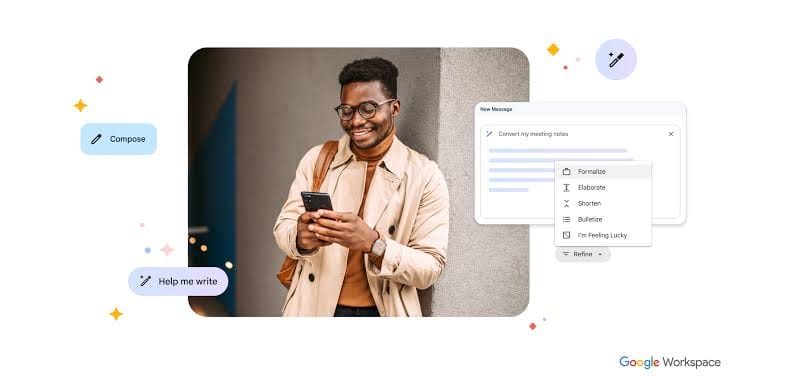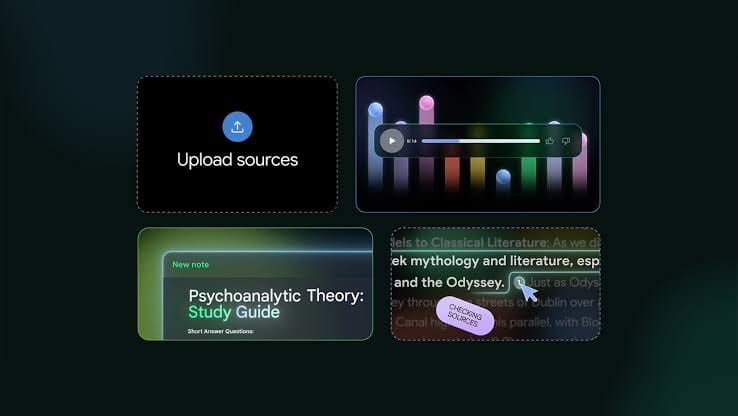Table of Contents


Want to Boost Rankings?
Get a proposal along with expert advice and insights on the right SEO strategy to grow your business!
Get StartedGoogle Search isn’t just evolving — it’s being reimagined.
In a recent conversation, Robby Stein, VP of Product for Google Search, laid out what might be the most dramatic shift in the platform’s history: the move from keyword-based search to intelligent, AI-powered assistance.
This transformation, powered by Gemini and a new generation of multimodal models, means users can now ask anything — and expect a lot more than 10 blue links.
- What Is the Big Shift from Search Engine to AI Product?
- How Is Google’s AI Search Making People More Productive?
- What Is NotebookLM and How Is It Changing Learning and Work?
- How Does Google’s AI-Powered Search Work Behind the Scenes?
- How Is Google Making Search More Personalized Than Ever Before?
- What’s in Google’s AI Search Roadmap for the Next 6 Months?
- What Do These Changes Mean for Users, Creators, and Businesses?
- The Internet Just Changed. Are We Paying Attention?
Free SEO Audit: Uncover Hidden SEO Opportunities Before Your Competitors Do
Gain early access to a tailored SEO audit that reveals untapped SEO opportunities and gaps in your website.

Here’s a breakdown of what’s changing, what it means for users, and why marketers, content creators, and SEOs need to pay close attention.
What Is the Big Shift from Search Engine to AI Product?
At the core of this leap lies Gemini, Google’s most advanced AI model. With its seamless integration, Google Search has evolved into the largest AI product ever deployed, running at an unprecedented global scale.
We are talking about AI delivered at search scale, not just another chatbot.
This means every query, every suggestion, every result page is powered not by simple algorithms but by intelligent, multimodal AI.
- The experience now combines:
- Web-scale understanding
- Context from Google’s ecosystem
- Personalized, dynamic responses
And this is not a lab experiment anymore. It is now live and billions of people are already interacting with it, whether they realize it or not.
Google calls this shift “search at frontier scale,” and what makes it powerful is
1.5 billion+ users each month and global deployment in real-time
How Is Google’s AI Search Making People More Productive?
What is the goal behind this AI revolution? According to Google’s internal vision, it’s to make humans:
- More productive
- More efficient
- More informed
That may sound like the usual tech ambition but with this new AI backbone, it suddenly feels real.

Take the new AI Overviews feature. It reads the internet, synthesizes insights and gives users summary-level answers right at the top of search all in natural language.
Results? No more clicking through ten blue links. Instead, users get concise, contextual answers which are often supported by sources, visuals and even shopping recommendations.
And it does not stop there. Google is now offering multimodal experiences, where you can ask questions via voice, image or text and get rich, synthesized responses. Think of it as having a supercharged, visual Copilot for your every information need.
What Is NotebookLM and How Is It Changing Learning and Work?
While Search is evolving into a smart assistant, NotebookLM is emerging as your AI-powered research partner.

Built on the same Gemini model, NotebookLM allows you to:
- Upload your notes, PDFs, and documents
- Ask complex questions
- Generate accurate summaries
- Discover insights from your own materials
Whether you are a student trying to understand a research paper or a founder organizing business notes, NotebookLM acts like a second brain which helps you make sense of what you already have.
It’s personalized AI, trained on your content, designed to change how we learn, retain and create knowledge.
How Does Google’s AI-Powered Search Work Behind the Scenes?
This is not just about bigger models. It is about smarter experiences.
Google’s engineering teams are balancing the size of AI models with response time and constantly customizing and rebaselining these models for user relevance.
The idea is to deliver the right answer, fast and even on complex queries.
Key transformations include:
A shift in user mental models: Search is no longer about typing precise keywords. You can ask it like a person for example “What are some great seafood spots near my hotel that match my taste?”
New UI and onboarding experiences: Especially for first-time or casual users, the interface guides people to use AI-enabled features in natural, intuitive ways.
Deep integration with Google’s information tools: Maps, Gmail, Calendar, Shopping, YouTube these all are feeding signals into the AI engine and creating an interconnected, personalized response system.
How Is Google Making Search More Personalized Than Ever Before?
Now here is where things get really interesting. Google is doubling down on personalized AI search.
Currently, you already see signs: suggestions based on past searches, dropdown predictions based on behavior, even tags like “You recently visited…”.
But coming soon? Optional integration with Gmail, your shopping history, calendar appointments and more all to create a search engine that understands your world.
Imagine this:
You type: “Book a dinner near the meeting location next week.”
Google replies: “You’re meeting Sarah at 6 PM at WeWork Downtown on Thursday. Here are 5 trending sushi places within 5 minutes’ walk. Would you like to reserve one?”
No need to re-explain, no repeated searches. Google already knows because you opted in to connect the dots.
Importantly, Google clarifies that this won’t apply to historical facts or controversial topics. For example, AI won’t personalize factual answers about WWII. The idea is to augment your personal life, not reinterpret history.
The vision? Use AI to make your accumulated digital trail actually useful, rather than just unwanted data.
What’s in Google’s AI Search Roadmap for the Next 6 Months?
Looking forward, Google’s roadmap for the next six months which includes:
1. Cross-Product AI Experiences
Search, Gmail, Docs, Drive and YouTube are all being enhanced with Gemini’s intelligence.
2. Agentic AI (Project Mariner)
This experimental project aims to create AI agents that don’t just assist but complete tasks — think “book me a trip with my preferences” or “find job listings matching my CV.”
3. Fighting AI Content Flood
With AI-generated content growing exponentially, Google is working on credibility signals and web trust ranking to surface authoritative sources.
4. Innovative AI Experiences
Personal software generation is coming where Gemini will create tools tailored to individuals or businesses, powered by Google’s datasets.
What Do These Changes Mean for Users, Creators, and Businesses?
For Everyday Users: Your search habits are going to change. Expect less typing, more asking. Less skimming, more summarizing. You will rely on Google not just to “look up” but to understand and act.
For Businesses and Brands: Visibility in search is being rewritten. Traditional SEO will need to evolve to focus on AI-synthesized answers, featured snippets, structured data, and trustworthiness signals.
If your content is not optimized for AI summarization then you might just disappear from user view.
For Creators: Originality, trust and utility are now the new gold standards. Content needs to go beyond clickbait and into real value because AI is smart enough to skip fluff.
For Competitors: Microsoft (with Bing + OpenAI), Amazon, Meta and Apple are all racing to compete. But with 1.5 billion monthly users, Google is ahead by miles for now.
The Internet Just Changed. Are We Paying Attention?
So yes, Google Search and introduction of Notebook LM has become a Frontier AI product. That is a fact.
But it is also becoming something more subtle, which is a digital companion that knows your habits, learns your preferences and helps you get more out of your time and effort.
We are witnessing the rise of an era where the search bar knows more about you than you might expect or be ready for.
About the author
Share this article
Find out WHAT stops Google from ranking your website
We’ll have our SEO specialists analyze your website—and tell you what could be slowing down your organic growth.














